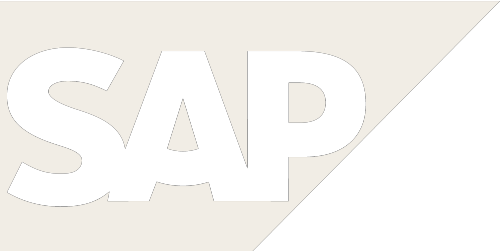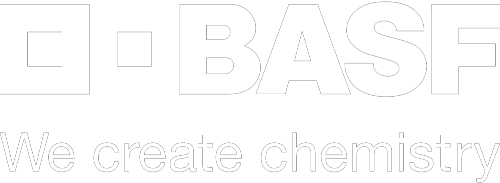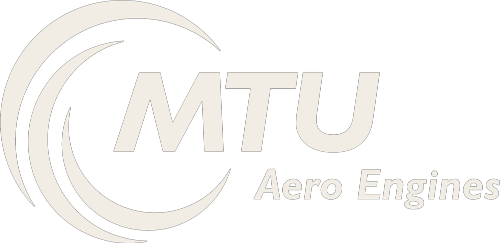TRANSFORMING QUANTUM SOLUTIONS
Bringing Quantum into Today’s Businesses
In the pursuit of elevating your business to new heights, have you considered quantum computing but felt lost on where to start? Aqarios is here to assist you. While many in the quantum realm promise the moon but underdeliver, at Aqarios, we ground our approach in reality. We strategically leverage quantum computing where it truly adds value. Our expertise in quantum approaches enables us to craft novel optimization and machine learning solutions, develop contemporary software tools tailored for the modern economy, and illustrate a detailed blueprint of quantum integration tailored for your business.
With Aqarios, you’re not merely observing the quantum shift, but actively participating in the revolution that’s reshaping the computing world.
Our Quantum Computing Projects
Driving Innovation, Addressing Real-World Challenges
Explore a selection of our diverse range of quantum computing projects, where innovation meets real-world problem-solving. These projects exemplify our commitment to pushing the boundaries of quantum technology and delivering practical solutions across various industries.

A unique collaborative project in Germany that aims to establish a quantum computing ecosystem to lower the entry barrier into the field of quantum computing and to connect the largest communities and network them internationally.
Details about the project
QuCUN (Quantum Computing User Network) is a joint project with the goal of establishing a central contact point for quantum computing applications in Germany. QuCUN offers companies and interested parties an easier entry into the dynamic field of quantum computing.
By networking with other projects, consortia and communities, QuCUN creates a Germany-wide quantum computing ecosystem. Our focus is on the transfer of know-how within the German economy and the reduction of entry barriers. QuCUN aims to enable companies to quickly gain initial experience on quantum computers.
As part of the framework program „Quantum Technologies – from the Foundation to the Market“ and as part of the high-tech strategy of the German government, QuCUN is funded by the Federal Ministry of Education and Research through the measure „Application Network for Quantum Computing“. QuCUN will initially network with 28 institutions from nine BMBF-funded projects of the measure „Applications of Quantum Computing“ and will subsequently open up to other institutions and internationally.

A project with MTU Aero Engines, aimed at harnessing the potential of quantum computing to optimize the assembly process for Germany’s leading engine manufacturer.
Details about the project
In an increasingly interconnected world, the significance of the aerospace industry is skyrocketing. Every day, millions of people rely on aircraft for work, holidays, and connecting with loved ones across the globe. As we look to the future, this reliance is set to intensify, not just within our planet’s boundaries, but also beyond, as space travel transitions from a distant dream to an imminent reality. With these expanding horizons come growing challenges and complexities, and that’s where quantum computing steps in. Quantum computing holds the potential to substantially assist in meeting these escalating challenges, offering solutions that were previously thought impossible.
In collaboration with MTU Aero Engines, whose components are integral to one-third of the world’s commercial aircraft and who serves as the industrial lead company for the German Armed Forces, we’ve embarked on a project that harnesses the power of quantum computing. Our mission? To tackle rotor balancing, a complex optimization task at the heart of the turbine assembly process.
Rotor balancing involves minimizing the imbalance resulting from differently weighted blades due to imperfect fabrication. This imbalance can cause vibrations and stress on the bearings, potentially shortening the turbine’s effective lifespan. Optimization here is crucial as it leads to a more efficient assembly process and reduced maintenance costs.
To address this, we’ve been exploring the potential of quantum computing, investigating a wide variety of approaches: Quantum gate model, quantum annealing, hybrid algorithms, and more. Our exploration has once again yielded impressive results, underscoring the potential of quantum computing. We developed a quantum-inspired classical heuristic algorithm, which has achieved excellent results on all given instances, essentially solving the optimization task sufficiently well for all our datasets and according to industrial requirements.
This project exemplifies the potential of optimization algorithms and quantum computing in solving complex industrial problems. It’s an exciting time to be at the forefront of this technological revolution, and we’re proud to be leading the way. As we look to the skies and beyond, we’re excited to further explore the impact of quantum computing on the aerospace industry.

Developing quantum-classical solutions to reach a near-term quantum advantage for optimization problems in the field of production and logistics.
Details about the project
The QCHALLenge project solves optimization problems in production and logistics using existing quantum computing (QC) hardware. For this purpose, algorithms, concepts and tools are developed that enable the industry to use QC in a cross-sector and low-threshold manner.
The project focuses on the domains of production and logistics due to their key role for the German economy. This results in use cases such as the optimization of supply chains and warehouses as well as the use of QC in automation. Implementations are primarily in hybrid (quantum-classical) form and are designed in such a way that potential customers quickly benefit from a quantum advantage without having to deal with the technology of QC.
The focus of QCHALLenge is the integration of QC into existing software workflows to solve application problems mainly in the area of optimization. In particular, QCHALLenge also aims at the optimization of methods in machine learning and simulation. For this purpose, suitable interfaces are identified and implemented on the basis of industrial use cases, which enable the profitable use of QC solutions.
Central to the practical implementation is the access to QC hardware, whereby the optimal QC hardware is selected for each problem and solution approach. In addition, QC solutions will be implemented that enable the immediate use of QC without a deeper understanding of the technology, and development tools will be created to facilitate the implementation of QC solutions. The final result of the project, after a thorough evaluation and revision as needed, is a comprehensive prototype that enables the low-threshold integration of QC into existing software solutions. As a by-product, recommendations for action for the industry and user-friendly QC applications for practice-relevant use cases are created in the course of the project, the use of which does not require a deeper understanding of QC in order to promote the targeted development of QC solutions.

Investigating the impact of quantum technologies on the energy sector for optimizing distributed energy networks.
Details about the project
In the Q-Grid project, the fundamental applicability of quantum computing to problems in the energy sector will be investigated. Typical problems concern, for example, grid optimization with many local sources and consumers. The major challenges in quantum computing that exist in the NISQ era will be identified before practical application. Therefore, three goals are pursued in the project: First, to develop novel quantum-based algorithms for use cases under the overarching theme of „Optimization of Distributed Energy Networks.“ Second, the development of an automatic pre-processing interface that decomposes optimization problems that are too large is planned, and third, the development of a benchmark system is envisioned. This benchmark system will enable the execution of automatic test series to evaluate different quantum assisted algorithms against classical optimization algorithms in order to identify possible quantum advantages. As there are currently no known approaches to solve the power sector grid optimization problems studied in this project using quantum computing, we are going to develop novel intelligent pre-processing system based on machine learning, as well as a new benchmark system to systematically evaluate quantum algorithms against classical optimization algorithms.
Navigate the Quantum Era with Confidence!
Discover automated solutions and intuitive interfaces on our quantum platform. Regardless of your background, Aqarios empowers you to unlock the full potential of quantum computing. Join the quantum revolution and navigate your business challenges effortlessly.
Embrace the future, act now!








